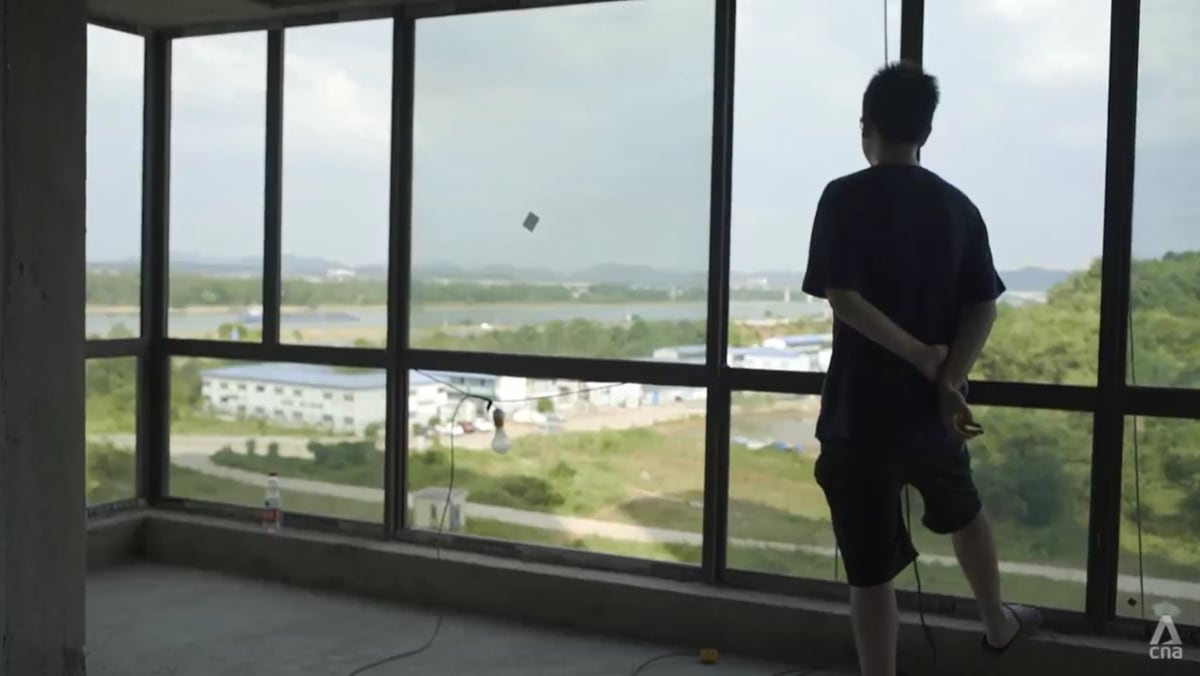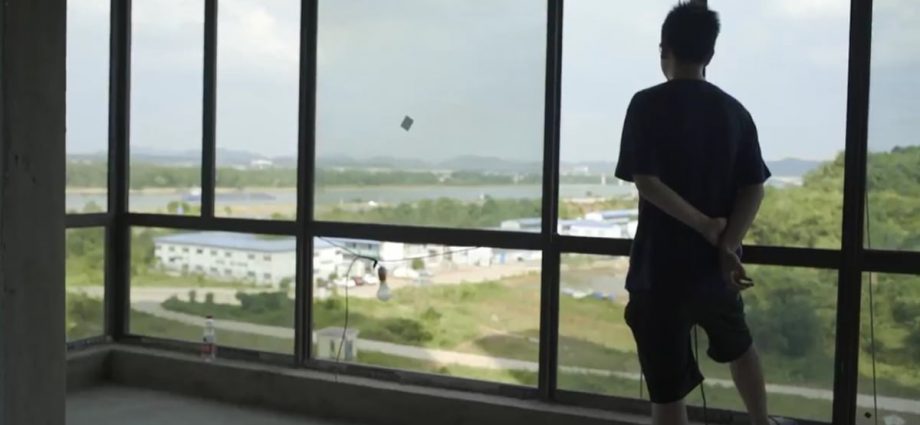
As it turned out, the company founded in 1996 by tycoon Xu Jiayin was not too big to fail.
And Qiang, whose monthly mortgage payment is about 8,300 yuan, must contend with the reality that his apartment, which was due by July 31, “can’t be delivered because it’s still not completed”.
“The pandemic has … (had) a huge impact on my job,” he added. “So it’s been very difficult for me these two years.”
‘IT’S NOT JUST CHINA’S PROBLEM’
Evergrande was only the first to fall. According to rating agency S&P, around 40 per cent of mainland property developers are now in financial distress.
The agency estimates that about two million unfinished homes presold by developers have been halted. There is also a risk that 2.4 million homes presold in 2020 and last year may not be completed on schedule, estimates Bank of America.
The impact has spread beyond home buyers, however, to other industries.
For example, in Guangdong province’s Foshan, the city recognised as China’s centre for the production of ceramic tiles — a popular flooring material used by developers — its ceramics industry was operating at half capacity in the first half of this year.
“Owing to the pandemic … and the real estate slump, we’ve been making no profit,” said one ceramics vendor. “We used to (make) 100,000 yuan in a day, but we now (make) less than 10,000 yuan … Can’t even make the rent.”
A decades-long boom has made real estate “the single most important sector” in China’s economy, noted Pettis. It has been estimated that construction and its related industries, from tile makers to furniture makers, account for 29 per cent of GDP.
“It’s really, really likely that we’re going to see a rise in insolvencies,” predicted Pettis.
Home prices are already falling in the world’s second-largest economy. S&P is forecasting a 6 to 7 per cent drop this year.
That means the Chinese middle-class who own one or more homes will be feeling less rich and more reluctant to buy cars, handbags and watches or travel abroad, passing up opportunities such as this weekend’s Formula 1 race in Singapore.
“If the Chinese economy were to stall as a result of this property and debt crisis, it’s not just China’s problem,” noted Donald Low, the director of The Hong Kong University of Science and Technology’s Institute for Emerging Market Studies.
“It’s in everybody’s interest that China makes this successful transition.”
Since the mortgage boycott first emerged at the end of June, China has cut mortgage rates and pledged to support project completion. But banks have shown reluctance to throw good money after bad.
In a policy document issued in July, Beijing said local governments will be primarily responsible for tackling rotten-tail homes. But some analysts have questioned whether local governments have enough resources.
A state bailout fund will help, but there is still no clarity about who is going to write the cheques.
Li is not waiting with bated breath to see what will happen. He is trying to move on and recently found a small shop to start a service linking cleaners to customers. It also doubles as his home.
The rent is 1,500 yuan, and customers are demanding, never shy to request a discount.
Money is still tight, and he does what he can. “The air conditioner uses a lot of electricity, so I avoid switching it on at night,” he cited.
His romantic dream of home ownership feels further out of reach. “I’ve lost hope,” he said. “I can never earn enough money to buy another apartment.”
Watch this episode of Insight here. The programme airs on Thursdays at 9pm.

